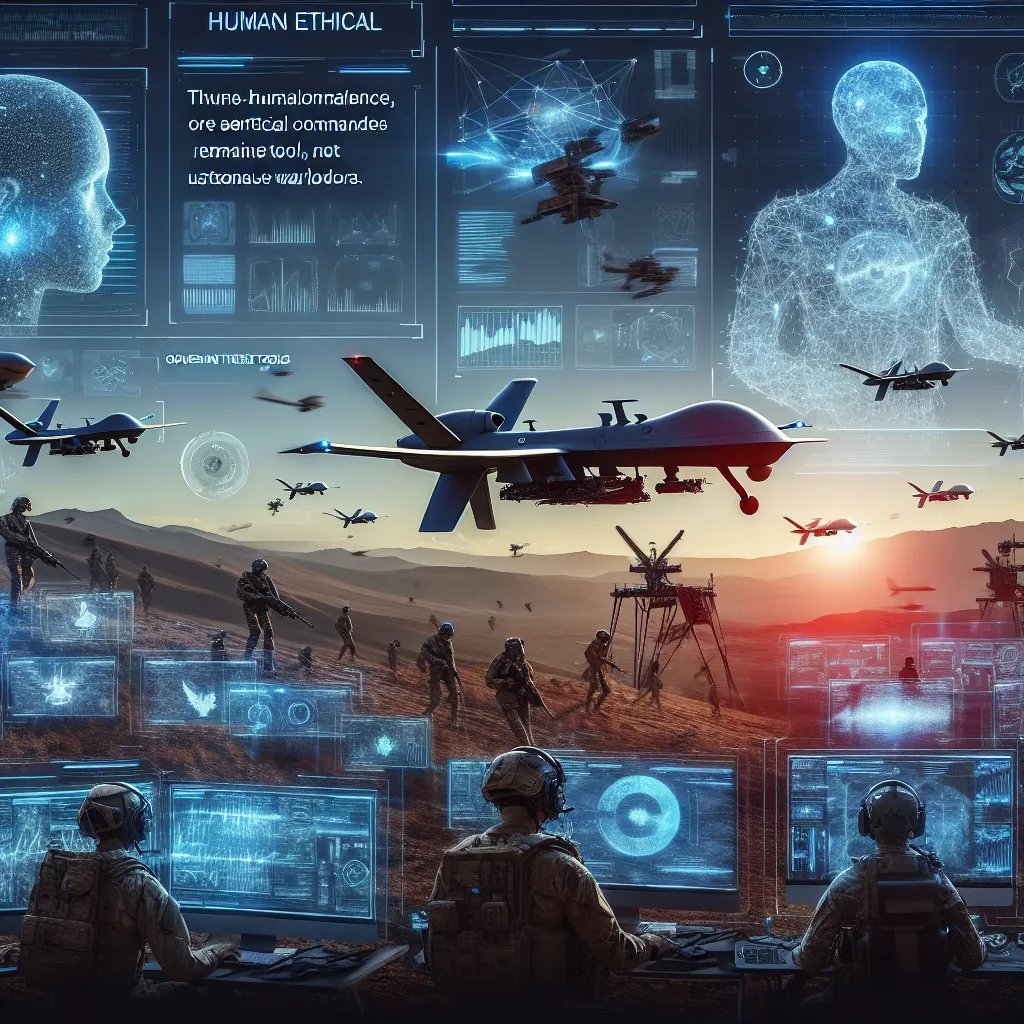War has always been a part of human history, but technology is transforming how we fight. We’re no longer limited to spears and arrows; today’s battlefield echoes with cyber attacks and AI-driven decisions. Every leap in technology redraws the lines of conflict, making old domains more complex and introducing new ones like space as the next frontier to conquer.
Modern warfare’s pace is quickening as machines take over more roles. Algorithms are now integral, guiding autonomous weapons with precision that feels almost otherworldly. The future of combat might be starkly different, potentially dominated not by humans but by artificial intelligence (AI).
AI, unlike anything seen before, is teaching machines to mimic human thought and make decisions. This goes beyond just playing chess or navigating roads. In warfare, smart algorithms guide drones, identify targets, and execute missions previously impossible without human input. Yet, as impressive as AI seems, it is still a tool within a specific function, not some all-seeing entity.
Technology’s role in military history is undeniable. The Springfield rifle in the American Civil War and the machine guns in World War I revolutionized combat, defining new strategies out of necessity. Technology dictates outcomes, as seen in World War II with radar and early precision weapons like Germany’s Fritz X.
As AI continues to advance, the military is investing heavily. The U.S. budget showcases billions directed at AI projects, leading some to envision the future battlefield swarming with drones or a wave of robotic warriors. However, we’re not yet at a point where robots will autonomously wage wars. Nonetheless, the development is ceaseless, driven by the promise of enhanced performance and new strategic possibilities.
The debate around AI in warfare is not just about capability but ethics. Can machines make ethically-loaded decisions, especially in life-and-death scenarios? AI systems like machine learning can process and act on vast amounts of data much faster than humans, but should they be trusted with such crucial tasks? Historical instances, like the judgment call made by the Soviet officer Stanislav Petrov during a nuclear scare, underscore the irreplaceable value of human intuition.
Integrating human judgment with machine efficiency is crucial. Programs like the U.S. Air Force’s Loyal Wingman, where drones support human pilots, illustrate a partnership approach rather than complete reliance on AI.
Despite the potential efficiencies, concerns linger about AI’s autonomy. The Campaign to Stop Killer Robots advocates for international action against autonomous lethal weapons, highlighting the moral boundary these systems might cross. While an outright ban on “killer robots” seems unlikely due to their military utility, ensuring they adhere to ethical standards is essential.
Autonomous systems should enhance, not replace, human oversight. Past fears around new military technologies, like aerial bombing in the early 20th century, mirror today’s concerns with AI. Yet, the progression from fear to acceptance is ongoing, driven by the necessity to remain technologically competitive in defense.
In essence, future warfare will blend new technologies with age-old human oversight. The AI revolution in warfare is a pivotal part of the broader digital transformation impacting society. Keeping humans in control is vital to maintaining the essence of warfare as a fundamentally human endeavor. Such a balanced approach might be the best defense against an inhuman future where machines dictate the outcomes of war.






